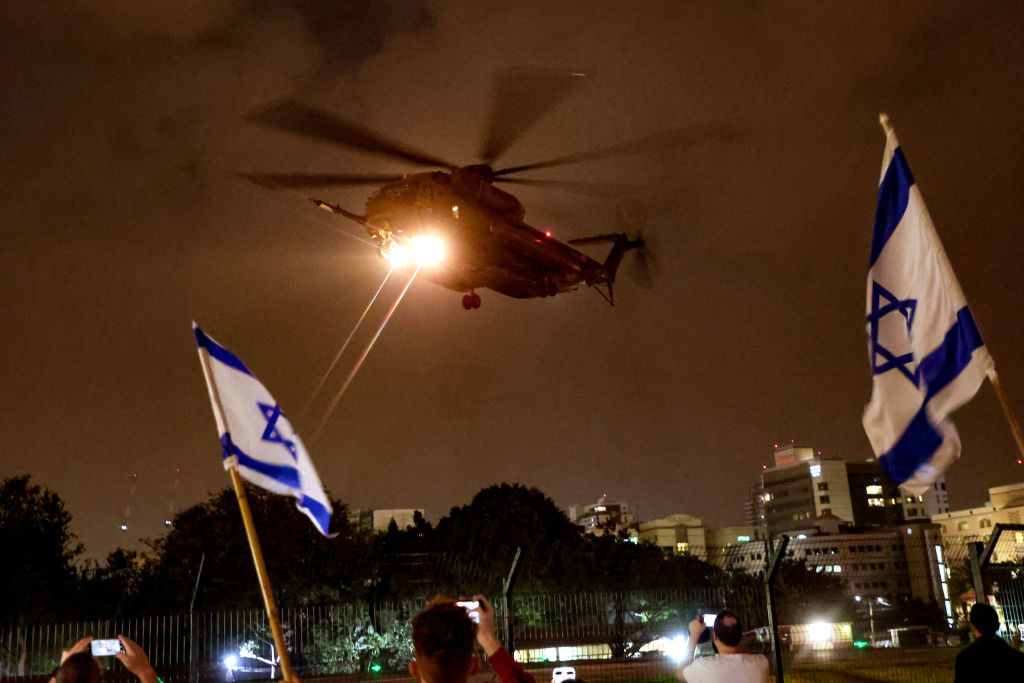There are those who, since October 7, have voiced their support for the “Palestinian cause.”
[time-brightcove not-tgx=”true”]
There are others who, as in Paris on Nov. 12, marched in silence, chanting no slogans and refraining from supporting one “side” or the other.
As for me, I support Israel.
Like the well-intentioned women and men who marched in Paris “for unity and peace,” I mourn every civilian struck down in this awful war.
I am a militant defender of human rights. I have spent a good part of my life reporting on the fate of the beleaguered Uighurs, Chechens, and Bosnians, the slaughtered Darfuris and Tutsis, the hundreds of thousands of Syrians massacred to generalized indifference, the innumerable victims of the world’s forgotten wars. I have spoken out, all my life, for the cause of the Palestinians, decimated by their Jordanian “brothers,” ostracized by their Egyptian “protectors,” sacrificed by the “sister” nations of the Arab-Muslim world and by their own unworthy leaders. And well… this defender of human rights, in all the places in the world where they have been scorned, can only be appalled by the unbearable images coming to us from Gaza.
But I support Israel because Hamas wanted this war, and Israel had no other choice but to wage it.
I support Israel because it is facing a coalition of forces—Hamas, Hezbollah, and Yemen’s Houthis—which if it should, by chance, achieve even the partial victory of a “ceasefire” without the hostages being freed, would expand still more.
I support Israel because I know that, behind those forces, there’s powerful Iran (their sponsor), vast Russia (the only country to have welcomed those responsible for the October 7 pogrom with honors), and, in a way, Turkey (with Erdogan condemning Israel before the Turkish parliament as a “terrorist state” whose “legitimacy” is “called into question” by “its own fascism”).
Read More: Facing Israel’s Trauma
I support Israel because China, while content for the time being to declare, through its minister of foreign affairs, Wang Yi, that Israel’s stance “challenges the idea of good and evil and the fundamental principles of humanity” (no less!), is a step away from jumping into the game and replicating, against the Middle East’s only democracy, the alliance formed against Ukraine, an alliance that has become the greatest challenge to peace and freedom in the world. (One can loudly condemn Israel’s policy of colonizing the West Bank, as I have always done. But how is it possible not to see that today’s most menacing colonialism, dangerously on the offensive, is that practiced by those who dream of restoring the lost glory of the Chinese, Persian, Arabian, Ottoman, and Russian empires?)
I support Israel because this war is not an ordinary war being waged to liberate a chunk of territory (it cannot be repeated often enough that, since 2005, the Gaza Strip has been for the first time in its history a land free of all outside control, eight times the size of Dubai-City and an area that the Palestinian Authority could have made the embryo of its state). It is a total war waged to eliminate any Jewish presence in the part of the Near East extending “from the river to the sea.”
I support Israel because I have covered many conflicts. In particular, in 2016–17, I made a film, The Battle of Mosul, and covered the bloody liberation of Mosul, the capital of the Islamic State. By stark contrast, I have never seen an army that, confronted with the tragedy of civilians living in a combat zone, took as much care as the IDF has done to announce its strikes in advance; to give inhabitants time to evacuate the targeted areas; then, when their oppressors got in the way and turned them into human shields, to escort residents out along a humanitarian corridor open for six hours each day along the Salah al-Din highway.
I support Israel because, in the days immediately following October 7, I visited the kibbutzim devastated by the pogroms. I spent time talking with the families of the hostages and with IDF soldiers preparing to enter Gaza. I posed questions to my Israeli friends in the peace camp and to government leaders. I listened to those in the United States and Europe who, while dismayed by the spectacle of ravaged Gaza, are convinced that Hamas must be destroyed. And nowhere have I found anyone who could propose a method of achieving this strategic and tactical objective that was appreciably different from the one implemented by the war cabinet in Jerusalem.
And, finally, I support Israel because putting Hamas out of business is a necessary condition for the liberation of the Palestinians themselves and for a just peace between them and Israel. There are other conditions, of course. The Netanyahu government will have to step down. The Israeli civil society that was gathering every Saturday in ever greater numbers before the war will have to take the lead again. But the essential precondition, bitter as it may be, is the victory of Israel.

